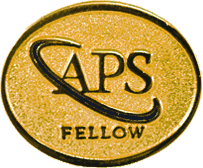FIP Members Recognized as APS Fellows

Xiao-Gang He, National Taiwan University
Citation: For influential contributions to particle phenomenology in CP violation and flavor physics, and in quantum topological phases, and for his leadership in promoting national and international collaborations in theoretical physics.
W. Luis Mochan, Instituto de Ciencias Físicas, UNAM, Mexico
Citation: For pioneering and imaginative work on the theoretical description of optical properties of surfaces and nanostructured materials, as well as for continuing efforts to communicate physics to a broad audience.
Jorge Morfin, Fermi National Accelerator Laboratory
Citation: For uniting theorists and experimentalists, particle and nuclear physicists, and physicists from North, Central and South America in understanding strong interactions in the nucleon, in the nucleus, and in neutrino interactions on nuclei.
Choo-Hiap Oh, National University of Singapore
Citation: For vital contributions to the development of physics teaching and research in Singapore, especially establishing its leading position in research in quantum technology, and for important personal contributions to this field.
James Proudfoot, Argonne National Laboratory
Citation: For mentoring young physicists from around the world, including those in underdeveloped nations, in the advancement of calorimetric techniques in HEP experiments and their application to electroweak and strong interaction measurements.
Javid Sheikh, University of Kashmir, Sinagar, India
Citation: For a pioneering contribution to the study of nuclei beyond the valley of stability and for developing symmetry projected mean field equations.
Eric Suraud, Université Paul Sabatier, Toulouse, France
Citation: For major contributions to cluster physics, including development of a microscopic description of the nonlinear response of irradiated clusters and molecules leading to a wide range of applications, and for developing ties with emerging nations in Eastern Europe and Asia.
David Vitali, University of Camerino, Italy
Citation: For groundbreaking work on cavity opto-mechanics, which proved to provide an ideal and flexible environment for quantum information processing and quantum-limited sensing; for proposing pioneering techniques to control decoherence in quantum systems.
